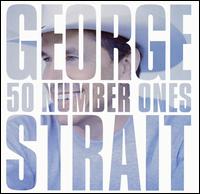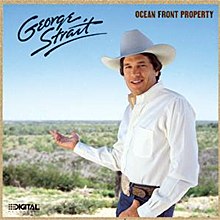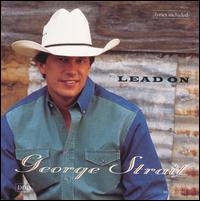new posts in all blogs
Viewing: Blog Posts Tagged with: Music, Most Recent at Top [Help]
Results 26 - 50 of 1,960
How to use this Page
You are viewing the most recent posts tagged with the words: Music in the JacketFlap blog reader. What is a tag? Think of a tag as a keyword or category label. Tags can both help you find posts on JacketFlap.com as well as provide an easy way for you to "remember" and classify posts for later recall. Try adding a tag yourself by clicking "Add a tag" below a post's header. Scroll down through the list of Recent Posts in the left column and click on a post title that sounds interesting. You can view all posts from a specific blog by clicking the Blog name in the right column, or you can click a 'More Posts from this Blog' link in any individual post.
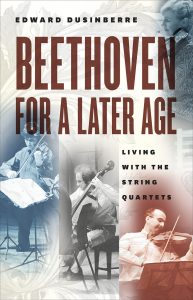
“Opus 18, no. 1: Beethoven’s Painful Secret”*
From his earliest days in Vienna Beethoven associated some of his compositions with friendship—a means by which to repair a disagreement or cement a relationship threatened by separation. One year after his arrival in Vienna, the twenty-three-year-old composer wrote to Eleonore von Breuning, his piano student and close childhood friend in Bonn. Beethoven blamed himself for a quarrel between them and hoped he could make amends by dedicating a short piano piece to her. In a lighter vein Beethoven composed his duet for viola and cello, ‘With Two Eyeglasses Obbligato,’ to play with his friend, the amateur Viennese cellist Nikolaus Zsemskall—both men were short-sighted.
In the second half of 1798, the Bohemian Prince Franz Joseph Maximilian von Lobkowitz—himself a competent singer, violinist and cellist—commissioned both the aging Haydn and his talented student to write six string quartets. Haydn would compose only the two Opus 77s and the unfinished Opus 103, hindered by other obligations and failing health. Towards the end of 1798 Beethoven began work on what would become his six Opus 18 quartets, and had probably finished them by 18 October 1800, when he received the second installment of a fee totaling four hundred florins from Prince Lobkowitz. This was a significant sum,more than half the amount it is estimated that someone in Beethoven’s situation would have needed to support himself for a year.
Beethoven’s work on his new quartets became intertwined with old and new relationships. By 25 June 1799, he had finished the first version of Opus 18, no. 1 and gave it as ‘a small token’ of friendship to Karl Amenda, a violinist with whom he had become friends following Amenda’s arrival in Vienna in spring 1798. Amenda was a year older than Beethoven and had trained in Lutheran theology at the University of Jena. After he moved to Vienna, he became the music teacher of Mozart’s children. Later in the summer of 1799, the death of his brother forced Amenda to return to his home town of Courland, in Latvia. In honor of their friendship Beethoven made him a gift of Opus 18, no. 1, entreating him to remember the times they had spent together.
Beethoven complained to Amenda at this time of a broken heart, likely caused not so much by Amenda’s imminent departure as by the marriage plans of one of Beethoven’s piano students, Joesphine von Brunsvik. In May that year, Josephine’s mother Anna had brought Josephine and her sister Therese to Vienna and persuaded Beethoven to give them piano lessons. Beethoven’s acquaintance with the family and possible infatuation with Josephine seems to have caused an interruption to his work on Opus 18, no. 1. Five years later, after the death of Josephine’s first husband, Beethoven would repeatedly declare his love for her, recalling that when he had first met her in 1799 he had been determined not to let himself fall in love. It seems rather more likely that Josephine was responsible for discouraging his overtures than that the young musician heroically repressed the desires of his heart. Whether or not her impending marriage was the cause of Beethoven’s distress in the summer of 1799, Beethoven fell in love easily and frequently: a broken heart was a common emotional state for the sensitive composer who craved depth and intensity in his relationships.
Amenda’s departure from Vienna may have contributed to Beethoven’s anguish. Over a year later, Amenda wrote to Beethoven explaining that he had fallen in love and was likely to settle for good in Courtland, but that when he played or listened to Beethoven’s music, ‘All of the ardent feelings awaken in me in the liveliest manner, [feelings] that your company itself inspired in me. It seems to me as if I must then get away from here and go to you, to the source of my most tender and most animated sentiments.’ Amenda feared—correctly—that hey might never see each other again, and entreated Beethoven never to forget him.
The overt emotion in Amenda’s letter was reciprocated. In the summer of 1801 Beethoven shared a painful secret with him:
How often would I like to have you here with me, for your B is leading a very unhappy life and is at variance with Nature and his Creator. Many times already I have cursed Him for exposing His creatures to the slightest hazard, so that the most beautiful blossom is thereby often crushed and destroyed. Let me tell you that my most prized possession, my hearing , has greatly deteriorated. When you were still with me, I already felt the symptoms; but I said nothing about them. Now they have become very much worse.
Franz Wegeler was another of only a few close friends in whom Beethoven confided: ‘For almost two years I have ceased to attend any social functions, just because I find it impossible to say to people: I am deaf.’
Beethoven’s professional situation, however, was now much better than it had been during his first years in Vienna. Publishers competed to publish his works, and as a result he was able to charge a higher fee for his compositions. He could now afford his own apartment and servant, although the increased independence was itself facilitated by Prince Lichnowsky, who paid him an annuity of six hundred gulden (or florins).
Some time after the composition and publication of Opus 18, Lichnowsky further demonstrated his belief in Beethoven’s string quartet projects by purchasing a quartet of Italian string instruments for him: violins by Joseph Guarnerius and Nicolò Amati, a viola by Vincenzo Rugeri and a cello by Andreas Guarnerius. The seal of Beethoven, stamped under the neck of the instruments, must have not seemed adequate proof of ownership: Beethoven took matters into his own hands, scratching a big B on the back of each instrument. Although Beethoven himself played the violin and viola, given his hearing problems it seems most likely that the primary beneficiaries of this purchase would have been Schuppanzigh and his quartet colleagues.
Thus Beethoven composed his Opus 18 quartets at a time when considerable professional recognition could not keep at bay feelings of social isolation, caused in a large part by his increased deafness and frustrations about his Viennese friends, many of whom he dared not to tell about his condition. To Amenda he worried not so much about the danger to his professional abilities as about the devastating effect on the his social interactions. In 1824 Goethe would describe a string quartet as ‘four rational people conversing with each other.’ Grieving the loss of companionship, Beethoven created his own ideal dialogues in his Opus 18 quartets, conversations in which he held complete control.
*This excerpt has been adapted (without endnotes) from Beethoven for a Later Age: Living with the String Quartets by Edward Dusinberre (2016).
***
To read more about Beethoven for a Later Age, click here.

By: Aviva LeShaw,
on 8/9/2016
Blog:
OUPblog
(
Login to Add to MyJacketFlap)
JacketFlap tags:
10 facts,
wind instruments,
Music,
Jazz,
facts,
Snakes,
orchestra,
musical instruments,
instruments,
Nuremberg,
*Featured,
Jazz Music,
brass instruments,
trombone,
Online products,
Add a tag
Tuba, trumpet, trombone...which one should you pick up this fall? Read below to learn what makes the trombone the right choice, and to find out a little more about this bass instrument's long history.
The post 10 facts about the trombone appeared first on OUPblog.

By: Hannah Paget,
on 8/4/2016
Blog:
OUPblog
(
Login to Add to MyJacketFlap)
JacketFlap tags:
*Featured,
The Taming of the Shrew,
Bianca,
Arts & Humanities,
Illuminating Shakespeare,
Boethius,
Gamut,
Hortensio,
joe ortiz,
John Dowland,
london music,
musical literacy,
Renaissance England,
Renaissance English drama,
Thomas Morley,
Music,
History,
Literature,
theatre,
shakespeare,
Music History,
British,
music education,
Add a tag
It is a commonplace to say that, in Renaissance England, music was everywhere. Yet, however true the statement is, it obscures the fact that music existed in many different forms, with very different functions and very different meanings.
The post Musical literacy in Shakespeare’s England appeared first on OUPblog.

By: Hannah Paget,
on 8/4/2016
Blog:
OUPblog
(
Login to Add to MyJacketFlap)
JacketFlap tags:
Thomas Morley,
Music,
History,
Literature,
theatre,
shakespeare,
Music History,
British,
music education,
*Featured,
The Taming of the Shrew,
Bianca,
Arts & Humanities,
Illuminating Shakespeare,
Boethius,
Gamut,
Hortensio,
joe ortiz,
John Dowland,
london music,
musical literacy,
Renaissance England,
Renaissance English drama,
Add a tag
It is a commonplace to say that, in Renaissance England, music was everywhere. Yet, however true the statement is, it obscures the fact that music existed in many different forms, with very different functions and very different meanings.
The post Musical literacy in Shakespeare’s England appeared first on OUPblog.

By: Celine Aenlle-Rocha,
on 8/4/2016
Blog:
OUPblog
(
Login to Add to MyJacketFlap)
JacketFlap tags:
*Featured,
Abe Shinzō,
Noriko Manabe,
Protest Music After Fukushima,
The Revolution Will Not Be Televised,
constitutional revision,
Japanese constitution,
Japanese elections,
Japanese media,
LDP,
Liberal Democratic Party,
Upper House of the Diet,
Books,
Music,
Politics,
journalism,
free speech,
United Nations,
human rights,
Add a tag
While the high drama of the Brexit vote and the US presidential election has grabbed international headlines, Japan has also completed an election that may have far-reaching implications. In the elections for the Upper House of the Diet (Japan’s parliament) on July 10, the ruling Liberal Democratic Party (LDP) and its coalition partners won 162 seats.
The post Japanese elections: constitutional revision and the anxiety of free speech appeared first on OUPblog.

By: Celine Aenlle-Rocha,
on 8/4/2016
Blog:
OUPblog
(
Login to Add to MyJacketFlap)
JacketFlap tags:
Books,
Music,
Politics,
journalism,
free speech,
United Nations,
human rights,
*Featured,
Abe Shinzō,
Noriko Manabe,
Protest Music After Fukushima,
The Revolution Will Not Be Televised,
constitutional revision,
Japanese constitution,
Japanese elections,
Japanese media,
LDP,
Liberal Democratic Party,
Upper House of the Diet,
Add a tag
While the high drama of the Brexit vote and the US presidential election has grabbed international headlines, Japan has also completed an election that may have far-reaching implications. In the elections for the Upper House of the Diet (Japan’s parliament) on July 10, the ruling Liberal Democratic Party (LDP) and its coalition partners won 162 seats.
The post Japanese elections: constitutional revision and the anxiety of free speech appeared first on OUPblog.

By: Celine Aenlle-Rocha,
on 8/3/2016
Blog:
OUPblog
(
Login to Add to MyJacketFlap)
JacketFlap tags:
Flea,
Freddie Mercury,
Red Hot Chili Peppers,
*Featured,
Life at Oxford,
bass guitar,
Chris Wolstenholme,
Helena Palmer,
Music,
muse,
Fall Out Boy,
music marketing,
Green Day,
Add a tag
In the midst of celebrating the bass guitar all throughout the month of July, we sat down with music marketer for Oxford University Press Helena Palmer. Are four strings really easier than six? What is the most difficult aspect of learning to play the bass guitar?
The post An interview with music marketer and bass guitarist Helena Palmer appeared first on OUPblog.

By: Celine Aenlle-Rocha,
on 8/3/2016
Blog:
OUPblog
(
Login to Add to MyJacketFlap)
JacketFlap tags:
Red Hot Chili Peppers,
Flea,
Freddie Mercury,
*Featured,
Life at Oxford,
bass guitar,
Chris Wolstenholme,
Helena Palmer,
Music,
muse,
Fall Out Boy,
music marketing,
Green Day,
Add a tag
In the midst of celebrating the bass guitar all throughout the month of July, we sat down with music marketer for Oxford University Press Helena Palmer. Are four strings really easier than six? What is the most difficult aspect of learning to play the bass guitar? How would you ensemble your dream band? Get all […]
The post An interview with music marketer and bass guitarist Helena Palmer appeared first on OUPblog.

By: Barbara Stuart,
on 8/2/2016
Blog:
OUPblog
(
Login to Add to MyJacketFlap)
JacketFlap tags:
Music,
*Featured,
emerging voices,
adolescent voices,
cambiata,
changing voices,
children's choir,
choral composers,
Martin Ashley,
Singing in the Lower Secondary School,
Add a tag
Oxford University Press has taken the risk of providing for the UK what the Cambiata Press has for many years been providing in the US – “quality music for adolescent choirs containing changing voices.” I use the word “risk” because cambiata music is a small market and the music teachers and choir conductors who understand what it is and why it’s needed are a small proportion of the minority who might even consider that choral work with adolescent boys is important. A minority they may be, but they are a growing minority and through this growth comes growth in the market.
The post Music for adolescent voices and the nightmare problem of ‘cool’ appeared first on OUPblog.

By:
Becky Laney,
on 8/1/2016
Blog:
Becky's Book Reviews
(
Login to Add to MyJacketFlap)
JacketFlap tags:
Nonfiction,
review copy,
music,
biography,
j nonfiction,
Houghton Mifflin Harcourt,
mg nonfiction,
2016,
books reviewed in 2016,
Add a tag
Let Your Voice Be Heard: The Life and Times of Pete Seeger. Anita Silvey. 2016. HMH. 112 pages. [Source: Review copy]
First sentence: Pete Seeger became the most important folk singer of the twentieth and twenty-first centuries. But he might have chosen a very different path. Although his grandfather made a fortune from sugar refining in Mexico, Pete became an advocate for underpaid workers. Though he came from financial privilege, he identified with those who had to make a living. He fought for the oppressed and poor all his life.
Premise/plot: Let Your Voice Be Heard is a biography of Pete Seeger written for children. (I'd say eight to twelve, if I had to put a label on it.) The biography is great at putting Pete Seeger's life into context for better understanding. Perhaps the author wanting to keep this one short and accessible for her audience, did not fully cover his life and music. It is not an exhaustive book on the subject. But a good, basic introduction.
My thoughts: I definitely found this one to be fascinating. I knew next to nothing about Pete Seeger before picking this one up. (I'm certainly no expert in folk music. My only familiarity at all coming from the music of Peter, Paul, and Mary.) I thought it was very well-written.
© 2016 Becky Laney of
Becky's Book Reviews
This will be the last post for my
George Strait Project. I thought I would make a few lists, answer a few questions, etc.
One word to describe George Strait's music: TIMELESS
Some phrases to describe his music: consistently high quality; forever true to himself, true to tradition; western swing at its best! makes you want to sing and dance!
Was the project fun? Yes, for the most part.
Did I get tired of George by the end of July? More than I thought I would be. I thought it would be impossible to have too much George in your life.
Did I only listen to George Strait? That's how I started out the month. But by the end, I was ready for a little distance and some other artists to listen to.
Would I recommend this project for someone else? Yes. But I would suggest spreading it out throughout a six month or even a year period. You could cover two to three albums per month and get it done in a year.
Would I be interested in doing another chronological project? Yes, probably. I'm not sure WHO at this point. And it will probably not be any time soon. I am also not sure if I'd ever devote that many posts to music at Becky's Book Reviews. Though if it were to be a year-long project, one post per month wouldn't be seen as quite the invasion that George became!!!
Which albums are MUSTS? If you were to only have TWO albums in your collection--say you have zero George Strait at the moment--then definitely 50 Number Ones (2004) and and 22 More Hits (2007). That would give you 72 of his best songs.
Favorite album from the 1980s? Probably Ocean Front Property. I really LOVE that one.
Favorite singles from the 1980s? Fool Hearted Memory, Amarillo by Morning, You Look So Good In Love, The Cowboy Rides Away, The Chair, Nobody In His Right Mind Would Have Left Her, Baby Blue, Ace in the Hole, Am I Blue, Famous Last Words of a Fool, Ocean Front Property, It Ain't Cool To Be Crazy About You, etc.
Favorite songs from the 1980s that were never released as singles? Friday Night Fever, 80 Proof Bottle of Tear Stopper, Dance Time in Texas, My Heart Won't Wander Very Far From You, You Can't Buy Your Way Out of the Blues...
Favorite album from the 1990s? I don't think I could ever, ever, ever choose. I might could come up with a top three albums from the 1990s...Livin' It Up (1990); Lead On (1994); One Step at A Time (1998).
Favorite singles from the 1990s? You Know Me Better Than That; Easy Come, Easy Go; The Big One; Check Yes or No; Lead On; Blue Clear Sky; One Night at a Time; I Just Want To Dance With You; We Really Shouldn't Be Doing This; Write This Down.
Favorite songs from the 1990s never released as singles? Someone Had to Teach You; She Loves Me (She Don't Love You); Is It Already Time; You're Right, I'm Wrong; Baby Your Baby; Stay Out My Arms; I Wasn't Fooling Around; Nobody Has To Get Hurt; That's Me (Every Chance I Get); Real Good Place to Start; That's Where I Want To Take Our Love; Always Never The Same.
Favorite album from the 2000s? I'm torn between Twang (2009) and Honkytonkville (2003).
Favorite singles from the 2000s? Don't Make Me Comve Over There and Love You, Troubadour, Twang.
Favorite songs from the 2000s that were never released as singles? Honk if You Honky Tonk, I Found Jesus on the Jailhouse Floor, She Used to Say That To Me, Texas Cookin', It Was Me, Where Have I Been All My Life
Favorite album from the 2010s? Cold Beer Conversation
Favorite singles from the 2010s? I Got A Car; Drinkin' Man; Here for a Good Time.
Favorite songs from the 2010s never released as singles? Three Nails and a Cross, I'll Always Remember You, It was Love, Take Me To Texas, It Takes All Kinds.
Country Music Is....
- No more late nights, comin' in at daylight, and no more doin' you wrong.
- Nickels and dimes, memories and wines - she's on his mind once again.
- I ain't rich, but Lord I'm free.
- He must have stolen some stars from the sky, and gave them to you to wear in your eyes.
- We've been in and out of love and in-between.
- With a little mouth to mouth she was ready to go.
- Well, thank you, could I drink you a buy?
- Even my heart was smart enough to stay behind.
- I don't worship the ground you walk on.
- A devil when she held me close, an angel when she smiled.
- Don't put it all on the line for just one roll.
- All the times before she'd break down and cry.
- There won't be no more next time doin' me wrong.
- Truth be known, you're dyin', cryin', lyin' there in bed.
- I miss picnics and blue jeans and buckets of beer.
- When you hear twin fiddles and a steel guitar, you're listening to the sound of the American heart.
- We tried to work it out a hundred times, ninety-nine it didn't work.
- I'm not the hero who will always save the day.
- Oh they just don't make hearts like hers anymore.
- My heart's the only part of me that's not in love with you.
- She said I don't recall seeing you around here you must be new to this town.
- But I never felt this feeling with anybody else.
- I got my fingers crossed that this goes on and on.
- I hit my knees and told God how much I hurt.
- I caught you lookin' at me when I looked at you. Yes I did, ain't that true?
- We'd each be hurting somebody else if we don't say our good-byes real fast.
- That's where I wanna raise the babies that we make.
- My heart's been on a long vacation, but now it's beating like a cha, cha, cha
- Today I'm right where Mama prayed I'd be.
- Some peddle steel whining like a whistle of an old freight train...
Can you identify which songs these lines are from?
© 2016 Becky Laney of
Becky's Book Reviews

By: Carolyn Napolitano,
on 7/28/2016
Blog:
OUPblog
(
Login to Add to MyJacketFlap)
JacketFlap tags:
Books,
Music,
Religion,
America,
Satan,
devil,
Nat King Cole,
Satanism,
*Featured,
Anton LaVey,
Church of Satan,
Lucifer,
Arts & Humanities,
answer me,
Children of Lucifer,
Diane Evelyn Hegarthy,
religious satanism,
Ruben van Luijk,
The Origins of Modern Religious Satanism,
Van Luijk,
Add a tag
Anton Szandor LaVey was the most outspoken and most notorious apostle of Satan in the twentieth century. On his life before founding the Church of Satan in 1966, LaVey liked to spun wild tales, but he did actually work as a professional and semi-professional musician in the carnival circuit. The High Priest of Satan was fond of bombastic classic music in the Wagnerian mould and popular tunes from the thirties, forties, and fifties, the period in which he himself had been young.
The post Was Anton LaVey serenading Satan in his cover of “Answer Me”? appeared first on OUPblog.
"Over the Garden Wall" creator Patrick McHale made a music video.
The post ‘The Zombie’ by Patrick McHale appeared first on Cartoon Brew.
Jazz Day: The Making of a Famous Photograph
by Roxanne Orgill
illustrated by Francis Vallejo
Candlewick, 2016
Grades 2-6
In 1958, fifty-seven jazz musicians gathered on a street in Harlem to pose for a photo for Esquire. The photo entitled "A Great Day in Harlem" became an iconic image from the 20th century, and the story behind the photograph is amazing.
In this extended picture book, Roxanne

By: Celine Aenlle-Rocha,
on 7/26/2016
Blog:
OUPblog
(
Login to Add to MyJacketFlap)
JacketFlap tags:
Books,
Music,
top ten list,
piano,
beethoven,
Bach,
mozart,
Liszt,
fortepiano,
Donna Gunn,
Discoveries from the Forepiano,
Manual for Beginning and Seasoned Performers,
period music,
Add a tag
We have all attended concerts where a performer dazzled us with technique that seemed hardly humanly possible – a phenomenon that has been a part of musical performances throughout history. In a 1783 anecdotal memory by Johann Matthias Gesner, the ability of J. S. Bach’s playing was described to “effect what not many Orpheuses, nor […]
The post Top Ten Tips to Tackling and Transforming Piano Technique appeared first on OUPblog.
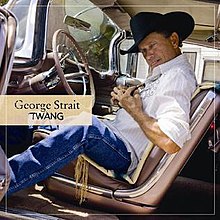 |
| 2009 |
If you want to follow along with this project, all related posts are tagged
George Strait Project. This post will cover the years 2009-2015.
Twang is George Strait's twenty-sixth album. It features thirteen songs. Four songs from the album were released as singles: "
Living for the Night," "
Twang," "
I Gotta Get To You," "
The Breath You Take."
The other songs on the album include: "Where Have I Been All My Life," "Easy As You Go," "Same Kind of Crazy," "Out of Sight, Out of Mind," "Arkansas Dave," "He's Got That Something Special," "Hot Grease and Zydeco," "Beautiful Day for Goodbye," and "El Rey."
George Strait has some writing credits on this album. Three of the songs he cowrote with his son: "Living for the Night," Out of Sight, Out of Mind," and "He's Got That Something Special." One song was written by his son, "Arkansas Dave."
"
Where Have I Been All My Life"
First stanza:
Been down the road to work and back
Been in what I thought was love a few times
But every once in a while I stop and ask
Where have I been all my life
Premise/plot: The singer is reflecting on his life, and questioning, perhaps, why it took him so long to realize some important, essential things in life. He's grown up, in other words, and seeing life a whole lot differently than he used to.
Favorite lines:
These days broccoli don't taste so bad
And neither does swallowing my pride
And I'm agreeing more and more with my old man
Where have I been all my life
Been learning that forgiveness is as much for myself
As it is for the other guy
And I read the good book these days and believe it
Where have I been all my life
My thoughts: I really LOVE this one. I can relate to it in many ways.
Favorite songs: I really enjoy all the songs on the album. But I really want to highlight "
Beautiful Day for Goodbye," "
Easy As You Go," and "
Hot Grease and Zydeco."
 |
| 2011 |
Here For A Good Time is George Strait's twenty-seventh album. It features eleven songs. George Strait and his son wrote or cowrote seven out of the eleven songs on the album. Three of the songs were released as singles: "Here For A Good Time," Love's Gonna Make It Alright," and "Drinkin' Man."
Other songs on the album include: "Shame On Me," "Poison," "House Across the Bay," "Lone Star Blues," "A Showman's Life," "Three Nails and A Cross," "Blue Marlin Blues," and "I'll Always Remember You."
"I'll Always Remember You" is co-written by George Strait, and, it is written for his fans--about his fans.
"Three Nails and A Cross" is without a doubt one of my favorites on this album.
The song I'd like to pay special attention to is "Drinkin' Man."
First two stanzas:
I woke up this mornin' and I swore to God
I'd never, ever take another drink again
I fought it like the devil, but you know that you're in trouble
When you're fourteen and drunk by ten a.m.
Tried to hide it from my mom and dad, all my friends said, straighten up
I just laughed, said, you don't understand
That's a hell of a lot to ask of a drinkin' man
Premise/plot: An honest look at the ugly truths of alcoholism. Country music often--but not always--glamorizes drinking, drinking a lot, getting drunk, being stupid while drunk. But not all country songs treat it that lightly. The song ends exactly the same way it begins, repeating: "I woke up this mornin' and I swore to God I'd never, ever take another drink again."
My thoughts: I think this song would pair well with "Where Have I Been All My Life," and "Three Nails and A Cross." I think you could imagine one person progressing from one to the other. The key perhaps being, "Three Nails and A Cross," as the middle song.
This song is the COMPLETE and TOTAL opposite of Toby Keith's Red Solo Cup.
 |
| 2013 |
Love is Everything is George Strait's twenty-eighth album. It features thirteen songs. Four of the songs were written or cowritten by George Strait. Three of the songs from the album were released as singles, "Give It All We Got Tonight," "I Believe," and "I Got a Car."
Other songs on the album include: "Blue Melodies," "I Just Can't Go On Dying Like This," "I Thought I Heard My Heart Sing," "That's What Breaking Hearts Do," "When Love Comes Around Again," "The Night is Young," "Sitting on the Fence," "Love Is Everything," "You Don't Know What You're Missing," and "When The Credits Roll."
My favorite is probably "
I Got A Car." It's a fun, little story song.
"
I Believe" was written in honor of the school shooting in Newtown, Connecticut.
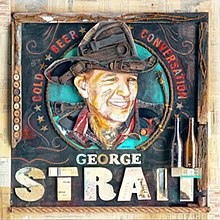 |
| 2015 |
Cold Beer Conversation is George Strait's twenty-ninth album. It features thirteen songs. Three of the songs are written--or co-written by George and his son. Two singles were released from this album, "Cold Beer Conversation" and "Let It Go."
Other songs on the album include: "It Was Love," "Goin' Goin' Gone," "Something Going Down," "Take Me To Texas," "It Takes All Kinds," "Stop and Drink," "Everything I See," "Rock Paper Scissors," "Wish You Well," "Cheaper Than A Shrink," and "Even When I Can't Feel It."
I do like the two songs that were released as singles. But I am clueless as to why they didn't release
IT WAS LOVE as a single. It is a GREAT song. And I just think it has HIT written all over it!
I really like
Take Me To Texas. George loves to sing about Texas!
Take me to Texas, on the open range
The Rio Grande is in my veins
It’s heaven there and so my prayer
Is that you’ll take me anywhere in Texas
The only home I know
I’m a child of the Alamo and the Yellow Rose
So when I go
If you were ever curious what it would be like if Dr. Seuss wrote a country song, then give a good long listen to "
It Takes All Kinds." This one is just catchy and FUN.
"
Everything I See" is another must. A son is singing a song about his father who recently died. This one would also make a great single, I think.
This was the album that "inspired" the project in the first place.
© 2016 Becky Laney of
Becky's Book Reviews

By: Celine Aenlle-Rocha,
on 7/23/2016
Blog:
OUPblog
(
Login to Add to MyJacketFlap)
JacketFlap tags:
Music,
edinburgh,
glasgow,
scotland,
music education,
Thessaloniki,
*Featured,
Alice Hammel,
Life at Oxford,
Gary McPherson,
Clyde River,
ISME,
Janice P Smith,
Lochness,
Maud Mary Hickey,
music education conference,
Add a tag
This weekend, the 32nd International Society for Music Education World Conference will be hosted in Glasgow, Scotland. Researchers, practitioners, and performers will gather to present concerts, talks and discussions. We asked a few attendees for their pre-ISME thoughts and plans. What are you looking forward to at the conference?
The post Preparing for ISME Glasgow appeared first on OUPblog.
 |
| Maurice Jarre |
I have definitely enjoyed participating in the Paris in July blog event. Today, I thought I would share my top three French composers.
3. Maurice Jarre (1924-2009) was a composer who did a LOT of movie scores. Most likely, you are familiar with his scores for
Lawrence of Arabia,
Doctor Zhivago,
Witness,
Dead Poets Society, and
Ghost. Also he did
Passage to India,
Is Paris Burning?,
The Man Who Would Be King,
Jesus of Nazareth, and
A Walk in the Clouds.
His biggest hit, of course, was "Lara's Theme."
2. Camille Saint-Saëns (1835-1921) is a popular choice for figure skaters. I'll be honest. That's how I came to know his music.
I'm sharing with you today:
Danse MacabreCarnival of Animals From the Carnival, but for the impatient sort,
The SwanSamson and Delilah, and, for the impatient sort,
BacchanaleIntroduction & Rondo Capriccioso Piano Concerto No 2 in G minor1. Georges Bizet (1838-1875) is definitely my FAVORITE, FAVORITE French composer. He is perhaps best known for Carmen, the opera. And I do love that. Though I prefer instrumental versions for easy-listening. But I really ADORE L'Arlésienne.
I'm curious if anyone will see the connection between these pieces of music and a certain children's television program. Bizet must be a big favorite of the LITTLE EINSTEIN folks.
Carmen Suite #1 and #2 Playlist
L'Arlésienne Suite No. 1 & Suite No. 2
© 2016 Becky Laney of
Becky's Book Reviews
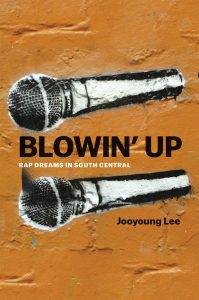
From a recent review of Jooyoung Lee’s Blowin’ Up: Rap Dreams in South Central, at Pop Matters:
One of the many powers of hip-hop, of course, is the intimacy it offers. Spend enough time listening to a certain rapper, and you begin to feel like you know that person as well as you do your own friends. Chuck D’s famous pronouncement that hip-hop is “CNN for black people”, pointed though it is, seems to miss part of the story. Hip-hop is CNN for white people, too, if you acknowledge the media’s systematic neglect of America’s black population. Through hip-hop, rappers are telling the stories that many journalists, and their publications, couldn’t be bothered to cover.
As a white hip-hop fan, there’s a seductive tendency to congratulate one’s self for gaining cultural competencies in African American culture, as if memorizing Tupac lyrics and attending Wu-Tang concerts confers a master’s degree in black studies. But the truth is that even in its rawest, most detailed form, hip-hop gives only what is at best a keyhole-sized view of the African American experience.
Jooyoung Lee’s Blowin’ Up: Rap Dreams in South Central represents a jump through the keyhole into the world of hip-hop as it is lived by some of the art form’s most dedicated practitioners.
To read more about Blowin’ Up, click here.

By: Hannah Paget,
on 7/22/2016
Blog:
OUPblog
(
Login to Add to MyJacketFlap)
JacketFlap tags:
Music,
Literature,
shakespeare,
playlists,
macbeth,
Henry V,
hamlet,
beyonce,
emo,
classical music,
juliet,
*Featured,
Audio & Podcasts,
Theatre & Dance,
spotify playlists,
titania,
Arts & Humanities,
Illuminating Shakespeare,
death metal,
gym tunes,
Hermia,
Add a tag
Shakespeare's characters can often appear far-removed from our modern day world of YouTube, Beyoncé and grime. Yet they were certainly no less interested in music than we are now, with music considered to be at the heart of Shakespeare’s artistic vision. Of course our offerings have come a long way since Shakespeare's day, but we think it is a shame that they never had a chance to hear the musical delights of Katy Perry or Slipknot.
The post What music would Shakespeare’s characters listen to? appeared first on OUPblog.
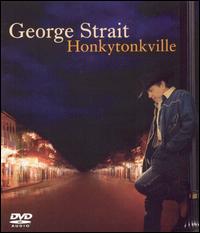 |
| 2003 |
If you want to follow along with this project, all related posts are tagged
George Strait Project. This post will cover the years 2003-2008.
Honkytonkville is George Strait's twenty-second album. From that album, three singles were released: "Tell Me Something Bad About Tulsa," "Cowboys Like Us," and "Desperately."
The other songs on the album include: "She Used To Say That To Me, " "Honkytonkville," "Look Who's Back From Town," "As Far As It Goes," "I Found Jesus on the Jailhouse Floor," "Honk if You Honky Tonk," "Heaven is Missing an Angel," "Four Down and Twelve Across," and "My Infinite Love."
I would not rate the three singles as being the best songs on the album. In fact, I much prefer some of the other songs on the album. I really, really LOVE some of these songs. I LOVE, LOVE, LOVE, LOVE "
Honk If You Honky Tonk." And I LOVE "
I Found Jesus on the Jailhouse Floor," and "
She Used To Say That To Me," and "
Look Who's Back From Town."
Well, I got a bumper sticker
On the back of my truck
There ain't another like it
'Cause I had it made up
I can tell who's behind me
They give themselves away
Lay on their horn when they read this phrase
Honk if you honky tonk
Don't if you don't
But, if you do
Don't you love to
Honk if you honky tonk
In 2004, George Strait released 50 Number Ones, an album featuring 51 songs. It included one new song in addition to all his number one singles. The new song was "
I Hate Everything," and it became his fifty-first number one hit.
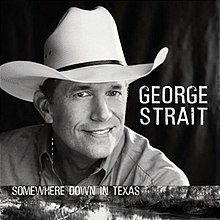 |
| 2005 |
Somewhere Down in Texas is George Strait's twenty-third album; it was released in 2005. Three singles were released from this album, "You'll Be There," "She Let Herself Go," and "The Seashores of Old Mexico."
Other songs from the album include: "If The Whole World was a Honky Tonk," "Somewhere Down in Texas," "High Tone Woman," "Good News, Bad News," "Oh, What a Perfect Day," "Texas," "Ready for the End of the World," and "By the Light of a Burning Bridge."
My favorites from this album include: "
If the World Was a Honky Tonk." "
Somewhere Down in Texas," "
Texas," "
Oh, What A Perfect Day." One song that grew on me was "
Ready for The End of the World."
If the whole world was a honky-tonk,
And it revolved around an old jukebox,
We'd tell our troubles to the Bar,
Over cryin' steel guitars,
And soon, they'd all be gone.
Yeah, if you asked me what I thought,
I'd say: "We'd be better off,
"If the whole world was a honky-tonk."
An' oh, what a perfect day for lovin' you.
When you're in my arms, I've got sunshine,
An' the sky's always blue.
Couldn't ask for better weather,
To do what I do:
Oh, what a perfect day for lovin' you.
I know the end is near
I've seen the warning signs
Been preparin' myself
Layin' in supplies
I bought a case of Jack
A boxed-set of Merle
I'm gettin' ready
Ready for the end of the world
I'm gettin' ready for the end to come
That final hour it all comes undone
An' she drops the bomb
An' says he ain't my girl
 |
| 2006 |
George Strait's twenty-fourth album, It Just Comes Natural, was released in 2006. From this album, four singles were released: "Give It Away," "It Just Comes Natural," "Wrapped," and "How 'bout Them Cowgirls." There are fifteen songs in all.
Other songs on the album include: "She Told Me So," "That's My Kind of Woman," "He Must Have Really Hurt You Bad," "A Heart Like Hers," "Why Can't I Leave Her Alone," "One Foot In Front of the Other," "I Ain't Her Cowboy Anymore," "Texas Cookin'" "A Better Rain," "What Say," and "Come On Joe."
It is harder to find favorites on this album perhaps. It is not my favorite or best. It is a good thing this one has fifteen songs, that's the only way I was able to find ten songs that I'd want to listen to over and over again.
My favorites include: "
A Heart Like Hers," "
How 'bout Them Cowgirls," and "
Texas Cookin'".
In 2007, George Strait released the album 22 More Hits. These are the hit songs that didn't quite make it to #1. But so many of these songs are iconic and essential. Songs that come instantly to mind when you think 'George Strait.' Songs like "Amarillo by Morning" and "The Cowboy Rides Away." It featured no new songs.
 |
| 2008 |
George Strait's twenty-fifth album, Troubadour, was released in 2008. From this album, three singles were released: "Troubadour," "River of Love," and I Saw God Today."
Other songs on this album include: "It Was Me," "Brothers of the Highway," "House of Cash," "Give Me More Time," "When You're In Love," "Make Her Fall In Love With Me Song," "West Texas Town," "House with No Doors," and "If Heartaches Were Horses."
From this album, I really love "
It Was Me," "
Troubadour," "
I Saw God Today," "
Make Her Fall In Love With Me Song," and "
Give Me More Time."
The first time I met her
She walked right up to me and said you're who I've wanted to find.
There was a man she had seen in her dreams and it was me.
She said I can't believe it cause I've never been in here
And I've passed this so many times.
It was her night to find destiny and it was Me
And we danced every song that they played, and talked until closing time
The closer I held her, the more I knew her destiny wasn't that far from mine.
Then I saw a reflection of someone unfamiliar looking back when I looked in her eyes
The happiest man I'd ever seen and it was me
I was a young troubadour,
When I rode in on a song
And I'll be an old troubadour,
When I'm gone
© 2016 Becky Laney of
Becky's Book Reviews

By: Lizzie Furey,
on 7/21/2016
Blog:
OUPblog
(
Login to Add to MyJacketFlap)
JacketFlap tags:
Music,
singing,
gordon thompson,
singers,
pop music,
British Invasion,
british music,
Twenty Feet from Stardom,
back up singers,
Margo Quantrell,
Books,
*Featured,
Add a tag
The documentary Twenty Feet from Stardom (2013) gave us a glimpse of how backing singers—performers who provide vocal harmonies and responses for featured artists—have contributed to twentieth-century American popular music.
The post A voice in the background: remembering Margo Quantrell appeared first on OUPblog.
One of my favorite sites on the internet is Largehearted Boy, which brings music and literature together.
A core series at LB are the Book Notes: playlists of songs to accompany books.
Huge thanks to the Largehearted Boy proprietor, David Gutowski, for inviting me to participate and create
a Book Notes entry for Blood: Stories.
The The, David Byrne, Cowboy Junkies, Washington Phillips, Arvo Pärt, and many more...
Read the rest of this post
 |
| 2000 |
If you want to follow along with this project, all related posts are tagged
George Strait Project. This post will cover the years 2000-2001.
In 2000, he released two albums. A greatest hits album called Latest, Greatest, Straitest Hits. It featured two new songs: "The Best Day," which became a #1, and, a duet with Alan Jackson called "Murder on Music Row."
"
The Best Day" is a great little song about a father and son. The son is telling his dad--once in each of the verses--that this day was the BEST day of his life. The first 'best day' is a camping trip, the second 'best day' is receiving a classic car to restore with his dad, the third 'best day' is the son's wedding day.
"
Murder on Music Row" is a song not without some controversy. I think it's an interesting story for a song.
First sentence: Nobody saw him running from sixteenth avenue.
Premise/plot: A murder has been committed. The victim? country music. The evidence is put forth in the chorus:
For the steel guitars no longer cry and fiddles barely play,
But drums and rock 'n roll guitars are mixed up in your face.
Old Hank wouldn't have a chance on today's radio
Since they committed murder down on music row.
Essentially the message is that 'real' country music--the traditional stuff--has been replaced ON THE RADIO with something calling itself country, but, not really quite country. You can imagine why this might be controversial!!!
The song begs the question: what IS country music? And who decides what is country and what isn't?
My thoughts: I really like this one. I think if you stay focused on the fact that it is talking about the RADIO--what gets played, what gets air time, what becomes popular--then it works as a fair criticism showing that radios do tend to play a narrow selection of artists and songs. Of course, traditional radio isn't the only way to enjoy music. And with 'new' technology like Pandora and YouTube and the like, you can find plenty of country music with steel guitars and fiddles!
George Strait and Alan Jackson weren't the ones to first record the song. Here are the
original singers performing it live. And
yet another version.
 |
| 2000 |
The second album George Strait released in 2000 was his twentieth, it's self-titled: GEORGE STRAIT. It includes three songs that would become hit singles: "Go On," "Don't Make Me Come Over There and Love You," and "
If You Can Do Anything Else."
It also includes: "Looking Out My Window Through the Pain," "If It's Going To Rain," "Home Improvement," "The Night's Just Right for Love," "You're Stronger Than Me," "Which Side of the Glass," and "She Took The Wind from His Sails."
"
Go On" is a GREAT conversation song. Another Strait song that captures half a conversation is The Chair. The 'premise' of this one is that two people are connecting over the fact that they've both been hurt and wronged in love.
Our conversation won't change nothing,
But it's sure nice to talk
With somebody whose been cut of
The same old cloth
You know how you said happiness can't be found looking back
If you don't mind maybe we can talk a little more about that.
"
Don't Make Me Come Over There and Love You" is a fast and flirty number that I think is very irresistible.
My hearts been on a long vacation
And now its beating like a Cha-Cha-Cha
Don't make me come over there and love you
'Cause I will right now
This album has a couple of sad songs on it: "Looking Out My Window Through the Pain," "If It's Gonna Rain," "Which Side of the Glass," "She Took the Wind From His Sails," and "You're Stronger Than Me." That is actually MORE than a couple, isn't it?! If you want proof that 'traditional' country music was still very much alive even if not getting radio time, give "
You're Stronger Than Me," a listen.
I really LOVE the song "
The Night's Just Right For Love."
I don't mind the thought of growing old
But I don't Want to lose my sense of humor
I'm okay as long as I can laugh
I don't care if everything goes wrong
Even if it's only for awhile
I'm alright if I can see you smile
You're an old-fashioned girl at home in the modern world
The night's just right for love
 |
| 2001 |
The Road Less Traveled is George Strait's twenty-first album. The album has ten songs. It features three hit singles: "
Run," "
Living and Living Well," "
She'll Leave You With A Smile."
Other songs on the album include: "Stars on the Water," "The Real Thing," "Don't Tell Me You're Not In Love," "The Road Less Traveled," "The Middle of Nowhere," "Good Time Charley's," and "My Life's Been Grand."
I really do not care for "Stars on the Water." George Strait--whether recording songs that are fast or slow--seems to pick songs that are either a) great to dance to b) great to sing along with or c) both! "The Road Less Traveled" definitely breaks with what I consider to be George Strait's strengths.
"
Good Time Charley's" is a great little dance-party number. Only in a country song, could you sing directions and have it work.
Two miles from town 'cross the railroad track
Turn right at the light and park in the back
You're always welcome, don't forget to drop in
Old Good Time Charley's, any time you can
But without a doubt my FAVORITE, FAVORITE, FAVORITE track from this album is "Don't Tell Me You're Not In Love." I don't know WHY this song was not a single!!! I love this one so much. I love the melody. I love the lyrics. It's just so perfectly-perfect.
I know you're ready, you show all the signs
Your eyes sparkle oh how they shine
But you keep saying
You can't take another heartache
The way you hold me, the way that you move
Your feelings keep showing through
You can't hide it
It's written all over your face
Don't tell me you're not in love
When your heart beats like it does
Your trembling body tells on you
Each time we touch
You can tell me you're afraid
I am too and that's okay
I got eyes, I can see
Baby don't tell me you're not in love
© 2016 Becky Laney of
Becky's Book Reviews
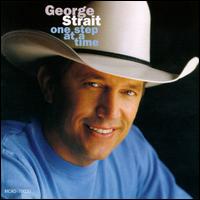 |
| 1998 |
If you want to follow along with this project, all related posts are tagged
George Strait Project. This post will cover the years 1998-1999.
George Strait's eighteenth album starts out with one of my all-time favorite songs: "
I Just Want To Dance With You." (How could anyone resist a whistling George?!) It's more than a little obvious what this one is about. What may not be conveyed is how sweet this one actually is.
I caught you looking at me when I looked at you
Yes, I did; ain't that true?
You won't get embarrassed by the things I do
I just want to dance with you
Other singles from this album include "
True," and "
We Really Shouldn't Be Doing This." "True" is a love song. One of those forever-and-ever love songs.
True, like the sun comin' up each mornin'.
Bright as the light in a baby's smile.
Sure as the mountain river windin'.
Right as the rain fallin' from the sky.
Girl, my love for you
Is true.
"We Really Shouldn't Be Doing This" is obviously about a forbidden 'romance' of sorts. It is super-playful and catchy.
Only an isolated incident, but the acquaintance left me stunned.
The first attraction was the hardest hit I thought I'd ever overcome.
This kinda situation has to pass, this chance encounter has to be the last.
To take it further we would be remiss, we really shouldn't be doing this.
We'd each be hurting somebody else if we don't say our good-byes real fast.
Won't even think about a farewell kiss, we really shouldn't be doing this.
Well...
Other songs on the album include "
One Step At A Time," a song recording a conversation between two men, he's warning him that angels walk away one step at a time; "
Remember the Alamo", a song not about the actual battle of the Alamo but more of a rallying cry to save a relationship (he proposed at the Alamo); "
Maria," a song that may or may not prove offensive to women or Mexicans; "
Why Not Now," a laid-back yet flirty song with a great little chorus:
So why not now, why not here?
Darlin' my heart just ain't too clear
Oh what are we waiting for
Cause I've never been so sure
Why not you, why not me
Livin' like we were meant to be
Together, forever
Why not now
"
That's The Breaks" is a song about the end of a relationship. (George sings A LOT of those, you'll find). "
Neon Row" features another relationship in trouble. This time it is the woman stepping out and not coming home. "
You Haven't Left Me Yet" is about a guy struggling to get over the woman who left him.
 |
| 1999 |
Always Never the Same is George Strait's nineteenth album. It features the singles "Meanwhile," "Write This Down," and "What Do You Say To That."
"
Meanwhile" is a melancholy almost-love song. He has a new love that he's wooing, yet, meanwhile in his head he's stuck in the past deeply in love with the one that got away. "
Write This Down" is a GREAT let's-not-break-up song. He is doing his best to convince her to STAY.
Baby, write this down, take a little note to remind you in case you didn't know,
Tell yourself I love you and I don't want you to go, write this down.
Take my words, read 'em every day, keep 'em close by, don't you let 'em fade away,
So you'll remember what I forgot to say, write this down.
I'll sign it at the bottom of the page, I'll swear under oath
'Cause every single word is true, and I think you need to know,
So use it as a bookmark, stick it on your 'frigerator door,
Hang it in a picture frame up above the mantel where you'll see it for sure.
"
What Do You Say to That" is a sweet little love song.
"
That's The Truth" reminds me of Famous Last Words of A Fool--as far as theme goes. "
Peace of mind" is an easy-going, happy to be alive song. "
That's Where I Want To Take Our Love" is a sweet little love song. It's a very settling-down, let's-raise-a-family type love song. "
Always Never The Same" is a fast-and-flirty love song with a LOT of happy-making piano bits! "
One of You" is another fast-and-happy love song. (It isn't the only country song with counting in it.)
Last night I had a dream, dreamt I had it all I had it all
I had one truck, one car
One boat, one guitar
But all these things wouldn't get me too far
If I didn't have one of you
I work hard every day to bring home all my pay
I got one house, one yard
One dog who likes to bark
We'd be cold, living the dark if I didn't have one of you
"
I Look At You" is another love song. (Some albums lean heavy towards love; some albums lean towards being all sad-and-lonely. This album obviously is very much LOVE.) That being said,
4 Minus 3 Equals Zero is very much a SAD song. Is it the saddest George sings, that's a good question. I think it's in the top three of the saddest-songs.
© 2016 Becky Laney of
Becky's Book Reviews
View Next 25 Posts





